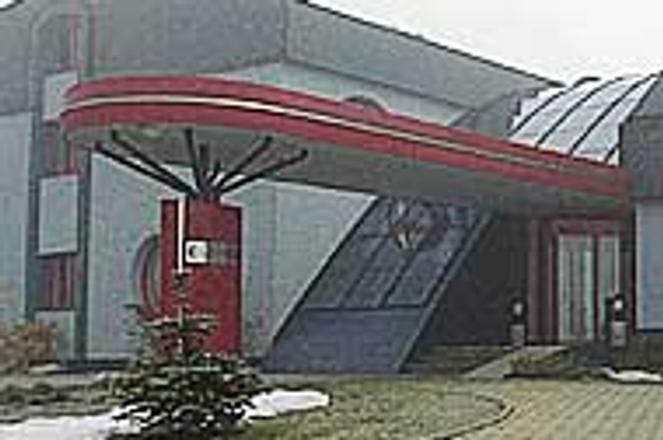THE UNIMPEX firm had a falsely declared arms shipment impounded this spring.photo: TASR
A BILL giving the state greater control over Slovakia's arms trade was approved by the government April 24, in what a western diplomat called "another step on the way" towards bringing Slovakia's weapons export laws into line with European Union standards.
Under the bill, which now goes before parliament, the number of companies in Slovakia licensed by the Economy Ministry to trade in arms may be slashed by two-thirds from the current figure, which police put at over 600.
Its backers hope the changes will help reduce concern among international bodies such as the United Nations, Nato and the European Union over lax arms export policy and the possible involvement of Slovak arms firms in illegal sales of military equipment.
"The goal of the changes was to set certain limits that would allow us to reduce the number of recognised [arms trade] licence holders," said Jaroslav Spišiak, vice-president of the Slovak police corps. "We wanted to do it in a natural way, rather than rule people out by executive restrictions, which would be very time-consuming through the number of investigations required."
If parliament passes the bill, as of August 1 companies holding licenses to do business with arms - including every form of military equipment from hand guns to helicopter gunships and military radar systems - will have to have a basic capital of Sk5 million ($110,000), will have to submit annual company reports and an auditor's report conducted in the previous two months, as well as proof of no tax and customs arrears.
Firms with arms licenses will also have to be joint stock companies rather than limited liability companies.
While the arms export license commission under the Economy Ministry refuses to divulge its list of license holders, or of exports approved by the commission, the business register contains many arms trading firms with the legal minimum Sk200,000 in basic capital, firms that Spišiak says may have no serious interest in the legal arms trade.
"If someone wants to trade in arms he must have a functioning company with a certain financial backing, it can't be a firm which has never done business before and never shown any profit," Spišiak said. "It's just not thinkable that such firms should conduct legal arms deals. Our analysis shows the new rules could cut the number of firms allowed to do business with arms to one third of the current figure of over 600."
For small arms trader Wipera, whose office is in the Bratislava headquarters of Slovakia's largest import-export firm, Kerametal, the changes will force owner Vladislav Luhový to alter the legal form of his company, increase its basic capital 25-fold and submit many documents that have so far not been required.
Despite the possible inconvenience, Luhový said that he was in favour of the changes.
"When I was involved with the state firm [weapons trader Armex in 1996] we ourselves insisted that it made no sense to have so many firms with licenses," he said. "Even now, and even though it may work against me, I agree with the idea of reducing the number of firms."
Since last September's terrorist attacks on US cities, Slovakia has come under close international scrutiny for its record on arms control.
A 2001 report by the United Nations documented the involvement of a Slovak firm, Joy Slovakia, in an international arms smuggling ring that had supplied weapons to embargoed countries in Africa.
Several weapons shipments were later seized in Slovakia by customs agents, who alleged the exporters had falsified cargo manifest documents or ignored export procedures.
Slovak secret service chief Vladimir Mitro and National Security Office head Ján Mojžiš reported that the country was developing a reputation among western nations as a source of illegal weapons.
But Spišiak said the latest amendment would go a long way towards improving transparency in the license-granting procedure.
"It would make the business activities [of licensed firms] easier to check up on. With so many firms having licenses, it created a situation that in the midst of all the legal trade, here and there you could have had illegal activities occurring as well."
Spišiak added that the number of firms with arms licenses had complicated the job of controlling the trade, and said: "You should ask the license commission whether they really investigated who they were giving licenses to."
License commission member Ivan Korčok, who holds the Foreign Ministry veto on arms exports, was on a business trip and was unavailable for comment on this story.
Onno Simons, counsellor at the European Commission's delegation in Bratislava, was cautiously welcoming of the amendment: "By cutting the number of companies it may make them easier to control, but I think the largest and most important [companies] will remain," he said.
"Let's call it a step on the way to controlling the illegal arms trade. Concerns remain, however, over transparency, lack of government control, and the resulting possibilities for companies in Slovakia to undermine EU policies in future."



